

As the days get warmer, we’re approaching the dreaded hay fever season. If you suffer from seasonal allergies, there are many ways to tackle them during the day and night, including showering before bed, dabbing Vaseline under your nose and using the best air purifier for allergy-free air.
It might come as a surprise but what you eat can have a big effect on your hay fever symptoms. Certain foods can help ease inflammation and support your immune system, whereas others can exacerbate the feelings of itchiness and sneezing.
To help you better manage your allergies this season, here are 9 foods to eat to alleviate hay fever symptoms and 4 foods that you should avoid. P.S. Check out these expert approved tips for dealing with hay fever at night.
Foods that ease hay fever symptoms
1. Berries
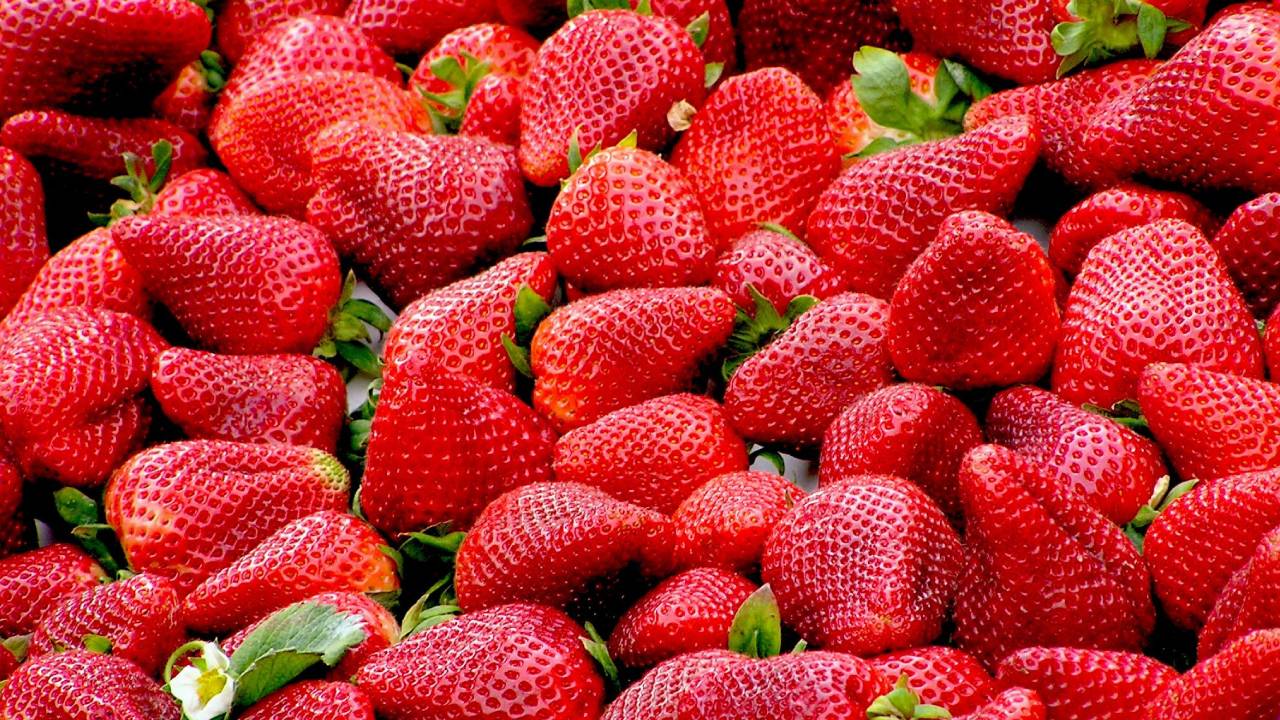
During hay fever season, you should consume foods that are high in vitamin C. According to Healthline, vitamin C acts as a natural antihistamine and works to reduce the amount of histamine your body produces in response to allergens. By lowering these histamine levels, hay fever sufferers should notice a reduction in symptoms like sneezing and watery eyes. Berries like strawberries, raspberries, blueberries and cranberries are high in vitamin C and rich in antioxidants that help inflammation, so try having a bowl of berries if you’re feeling congested.
2. Pineapple

Another fruit that eases hay fever symptoms is pineapple. Pineapple is vitamin rich and contains the enzyme bromelain. Found in pineapple stems and juice, bromelain causes the body to make substances that reduce pain and swelling in the nose and gums. If you’re experiencing a running nose, itchy eyes and coughing, eating pineapple or drinking pineapple juice can alleviate this irritation.
3. Carrots
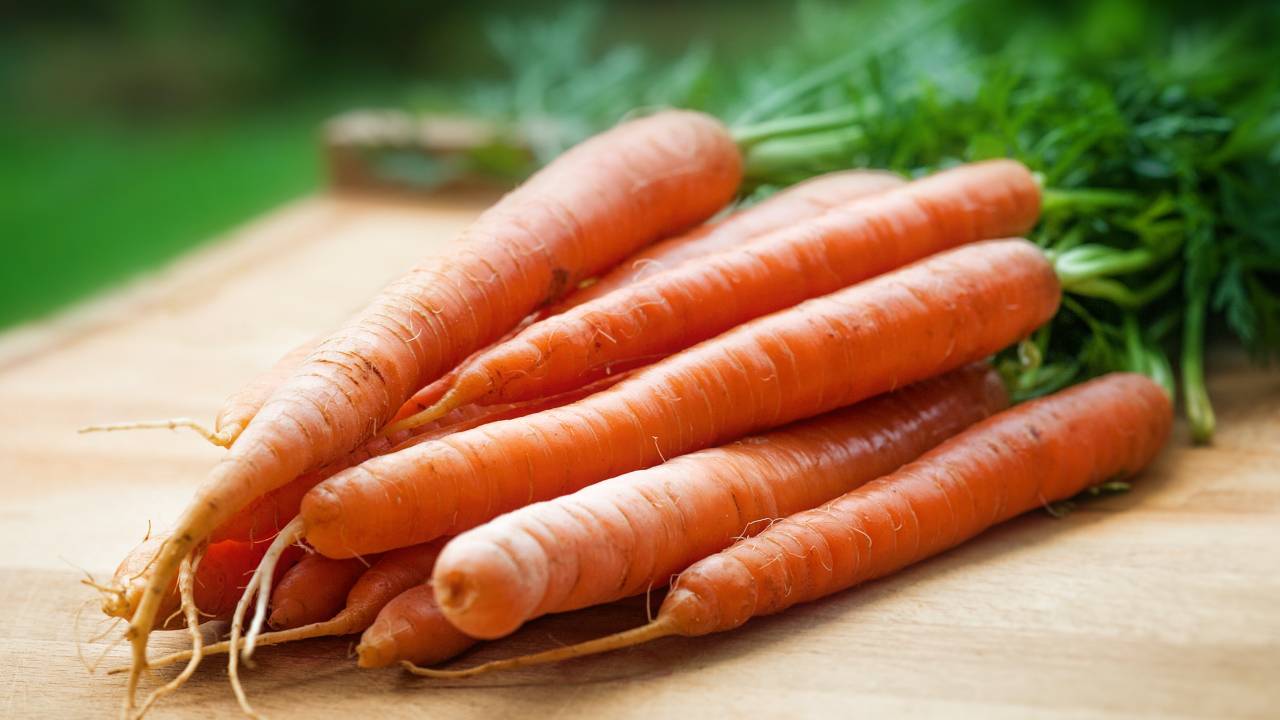
Carrots are packed full of vitamins and minerals that help alleviate hay fever symptoms. This root vegetable, along with sweet potatoes, beetroot and pumpkins, contains carotenoid which is a plant pigment that improves the immune system and reduces inflammation in the airways. For those who experience tightness in the chest during allergy season, adding carrots and other root vegetables to your diet could help ease this discomfort.
4. Onions
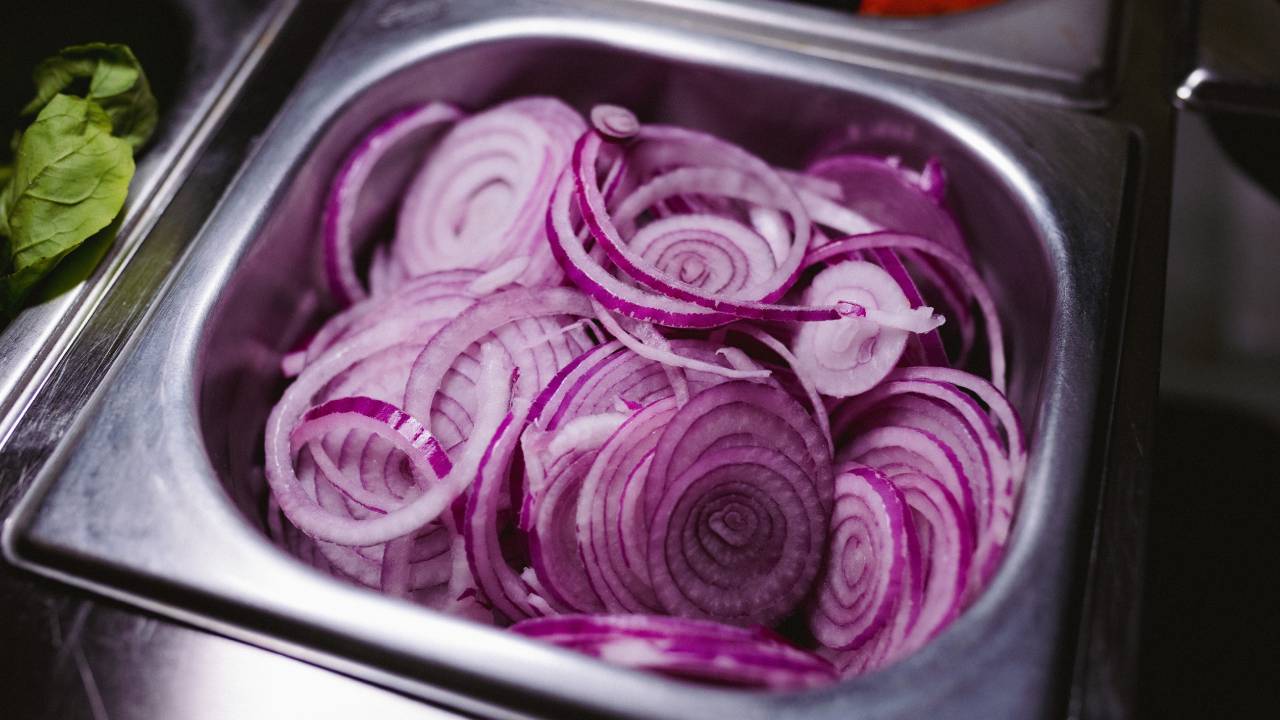
Both white, red and green onions are high in quercetin, a pigment that acts as a natural antihistamine. Alongside its high amount of antioxidants, the quercetin inside onions calms cells that react to allergens, helping reduce inflammation and improving immunity and gut health. Many sources recommend eating onions raw to get the full effect as cooking onions can remove their quercetin content.
Sign up to the T3 newsletter for smarter living straight to your inbox
Get all the latest news, reviews, deals and buying guides on gorgeous tech, home and active products from the T3 experts
5. Kale
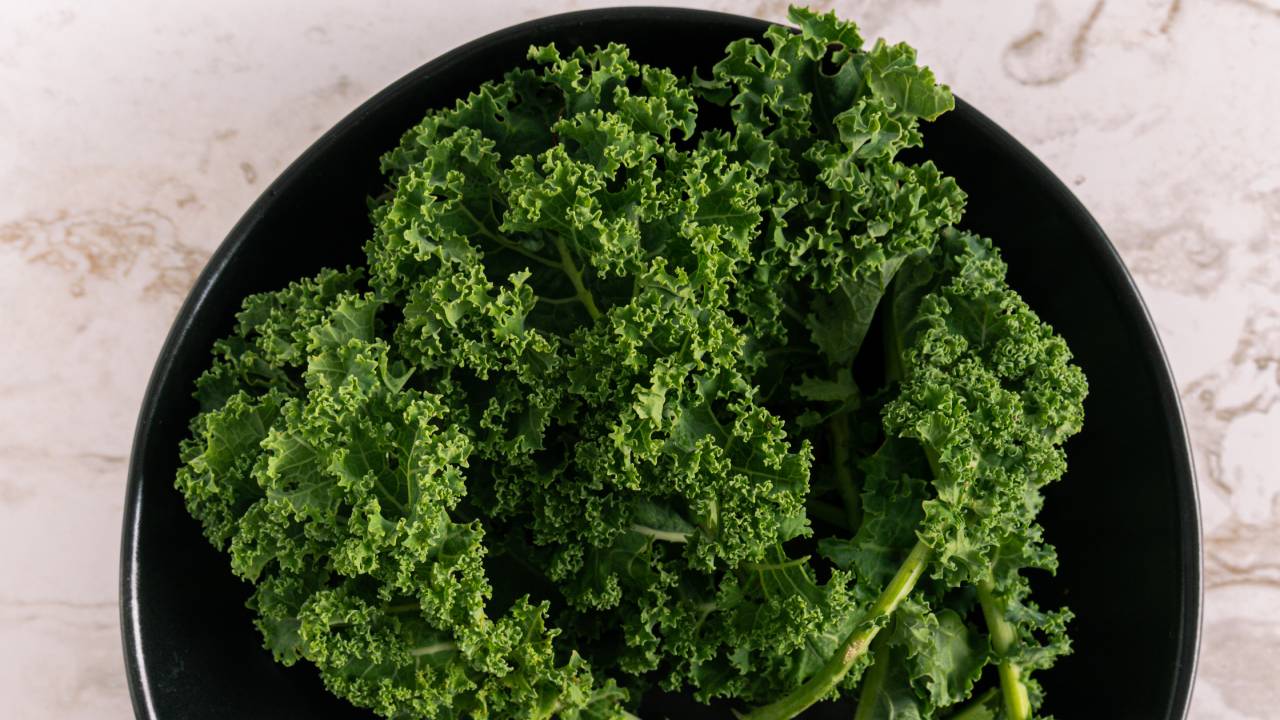
Similar to onions and carrots, kale contains quercetin and carotenoids. Both pigments are natural antihistamines and fight inflammation. If you’re experiencing itchy eyes and a runny nose, switching out lettuce and replacing it with kale in your salads can help prevent them.
6. Peppers
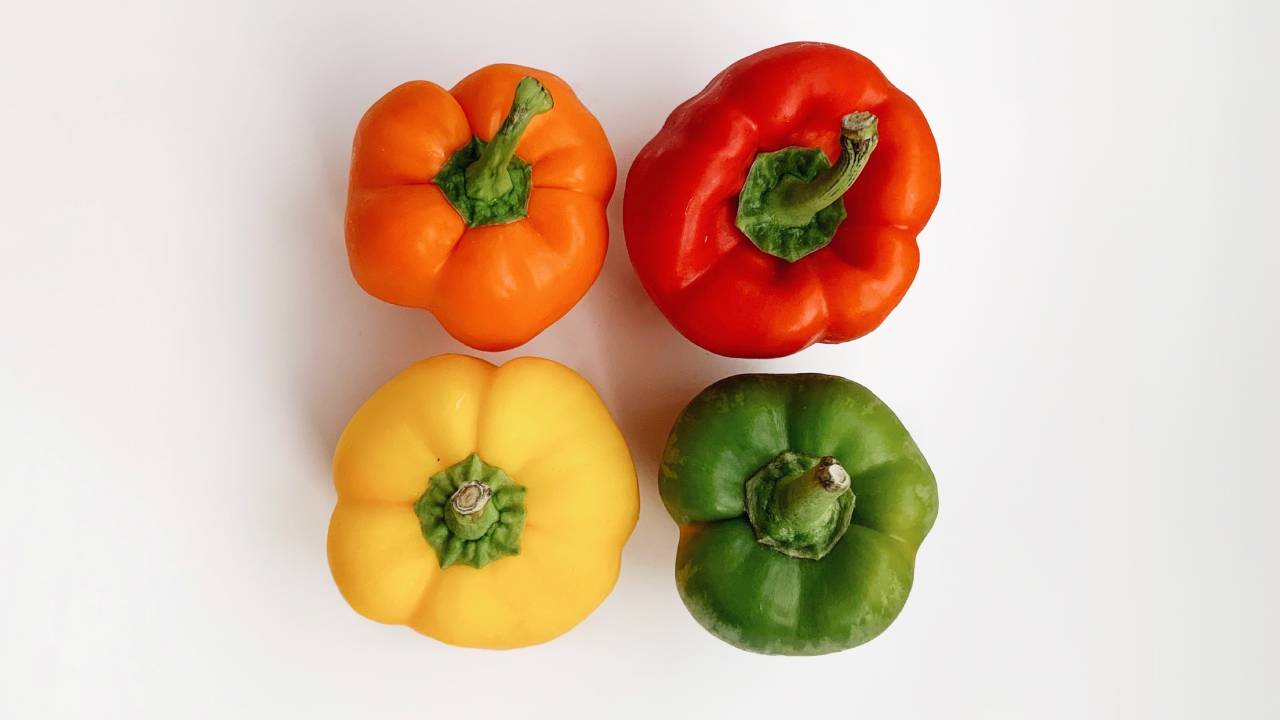
For allergy sufferers, peppers will be your best friend during hay fever season. Red, yellow and green peppers are high in vitamin C and carotenoids which help ease hay fever symptoms like itchiness around the eyes, nose and throat. Chilli peppers are also anti-inflammatory too.
7. Ginger
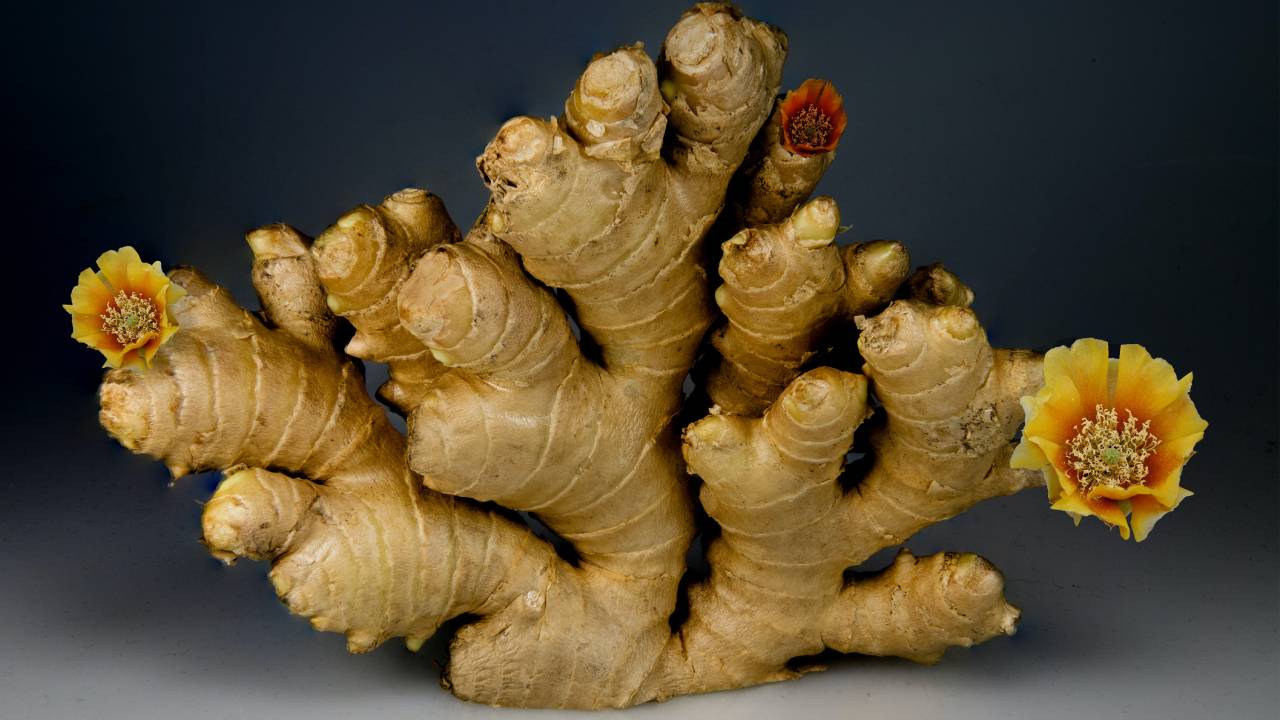
Adding ginger to stir fries or having a ginger flavoured tea can help calm your body’s reaction to allergens. Fresh ginger acts as a natural decongestant and calms the release of histamine in the body, so you’re less likely to react to dust, pollen or grass allergens.
8. Garlic
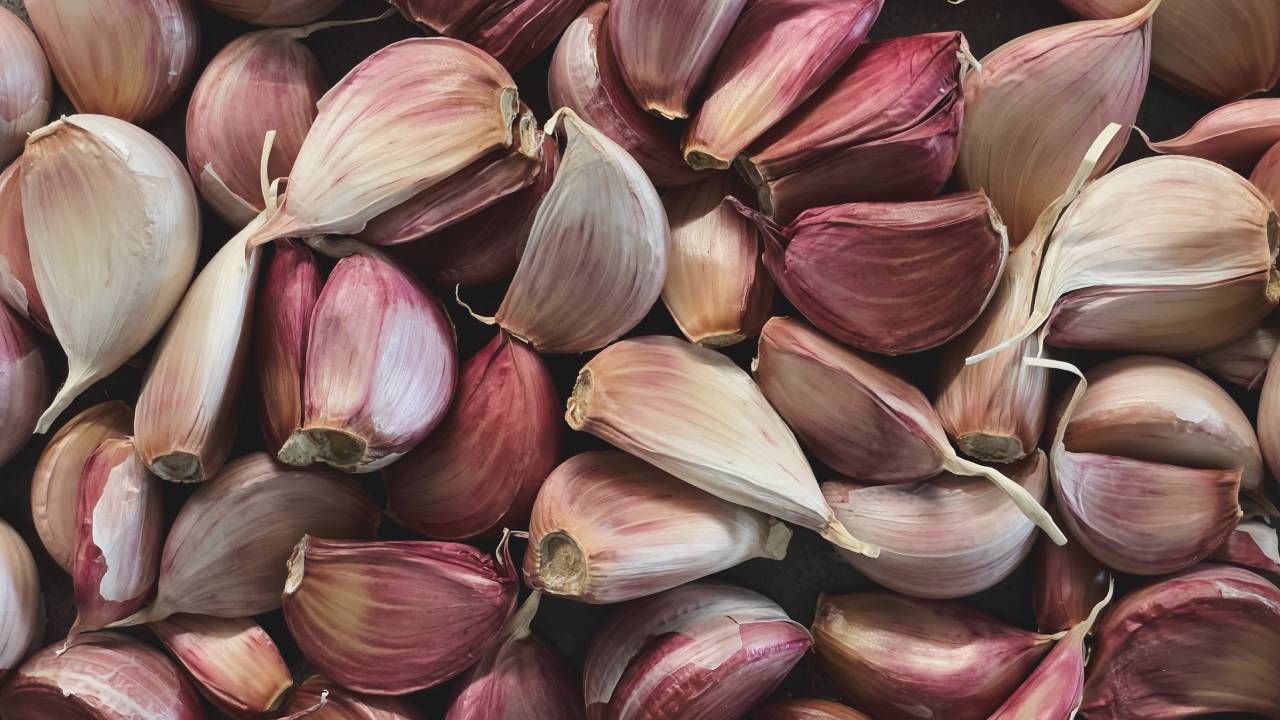
Just like ginger, garlic soothes inflammation as it calms the cells in the body that release histamine and reduces symptoms. Garlic is also rich in antioxidants and each clove contains vitamins and minerals like magnesium, iron, vitamin C, E and K. Vitamin E is said to be one of the best vitamins for improving symptoms, so cooking with garlic during allergy season is highly recommended.
9. Salmon
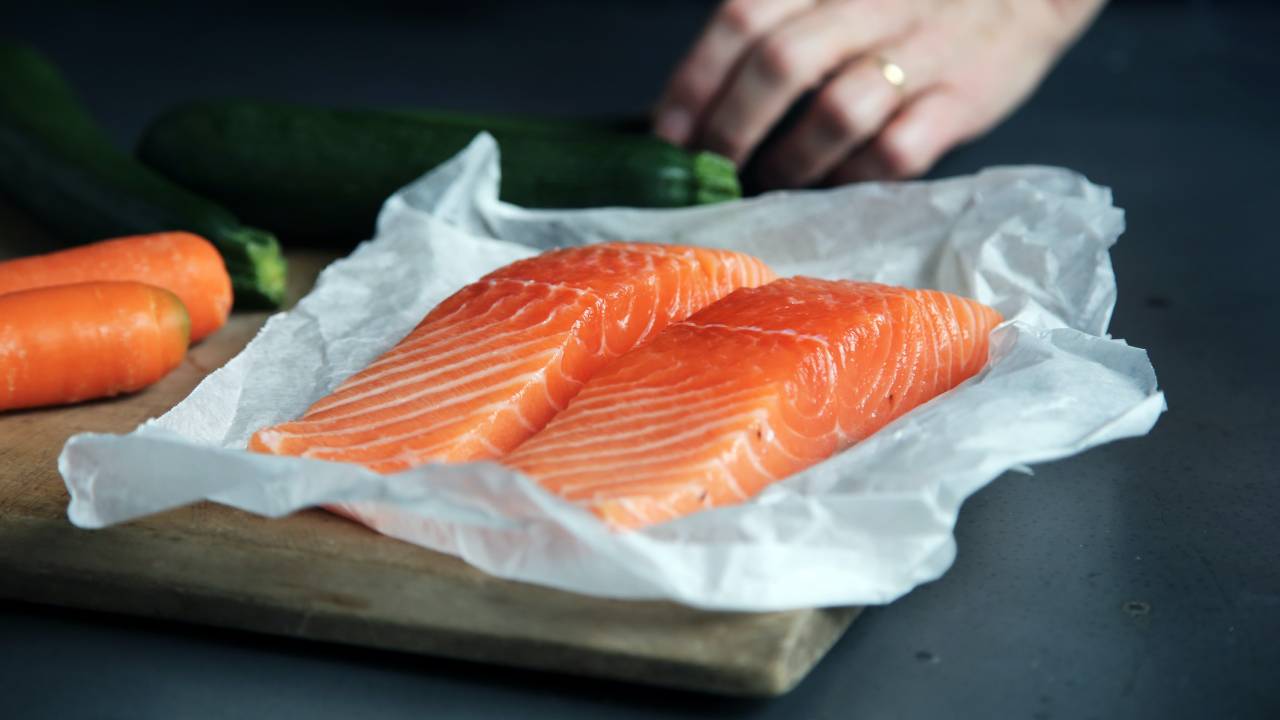
Fatty and oily fish like salmon are full of omega 3 acids which have been found to improve your tolerance to allergies and lower inflammation and swelling. Eating salmon can result in less itching and improve breathing issues like asthma. Salmon is also high in vitamin D which when combined with omega 3 acids increase the body’s production of serotonin. This increase in serotonin can help you sleep better which is especially helpful if you suffer from hay fever at night. See foods to eat for a good night’s sleep for more details.
Foods that make hay fever symptoms worse
1. Apples
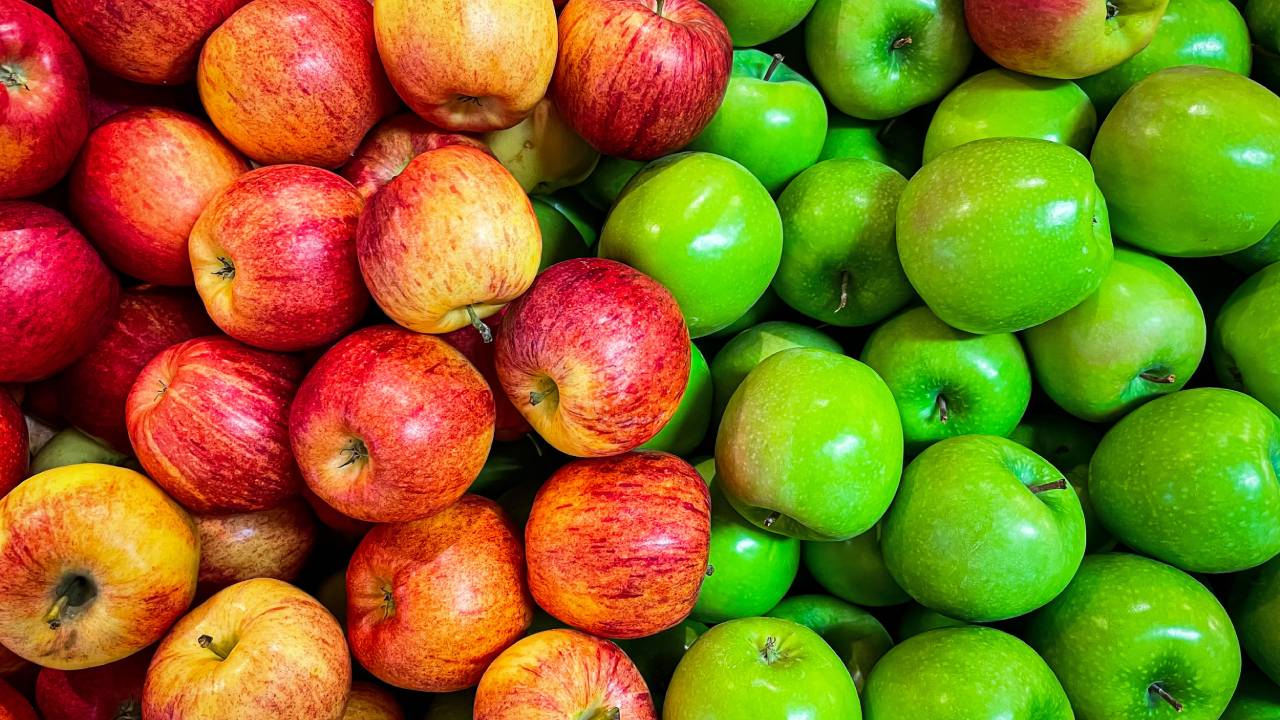
Many studies have looked at how apples affect hay fever, with some saying that red apples help ease symptoms whereas others say apples make allergies worse. The latter is because apples can cause pollen-food or oral allergy syndrome which is where your body reacts to foods found in trees and grass. People who experience oral allergy syndrome will get itchy lips, tongue and inside of the mouth. If you don’t have this, apples should be fine to eat during allergy season but if you do, apples can make symptoms worse.
2. Melon
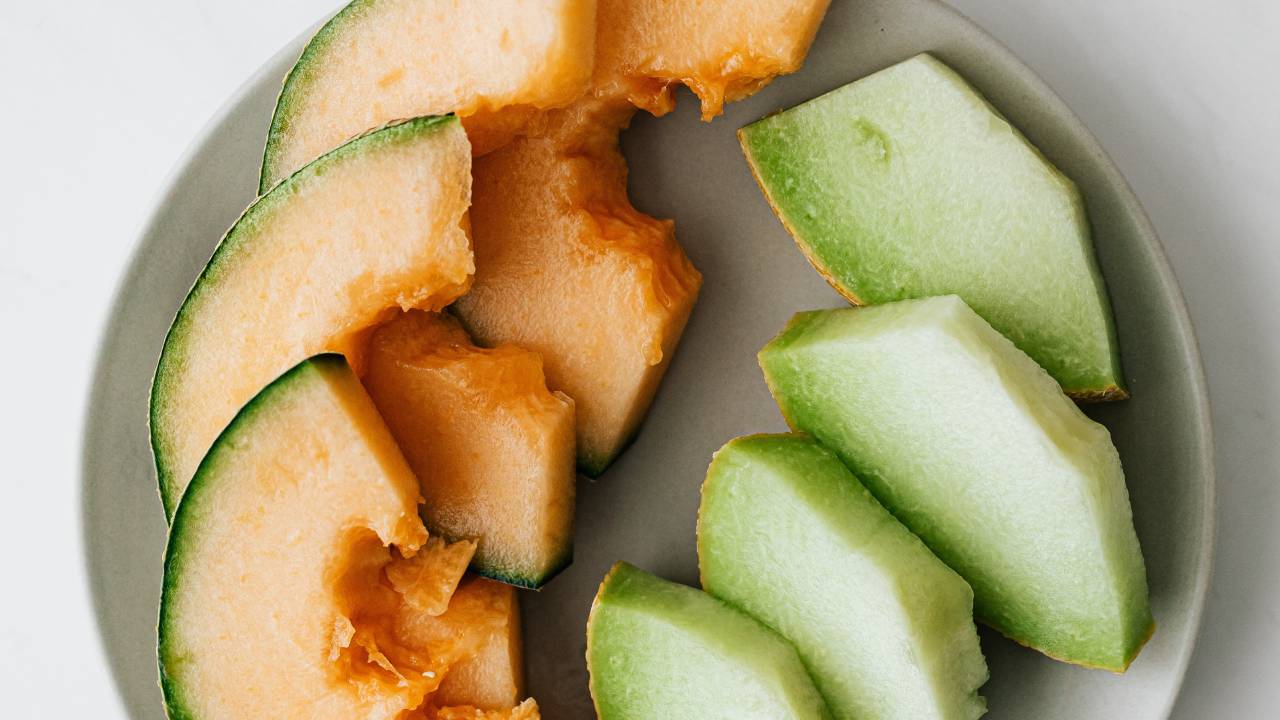
Similar to apples, melon is also related to oral allergy syndrome and can trigger those who have allergic reactions to grass and ragweed. Despite melons being refreshing during the hot weather, honeydew and cantaloupe melon can cause inflammation to the mouth and inner ears so it’s best to be avoided.
3. Dairy
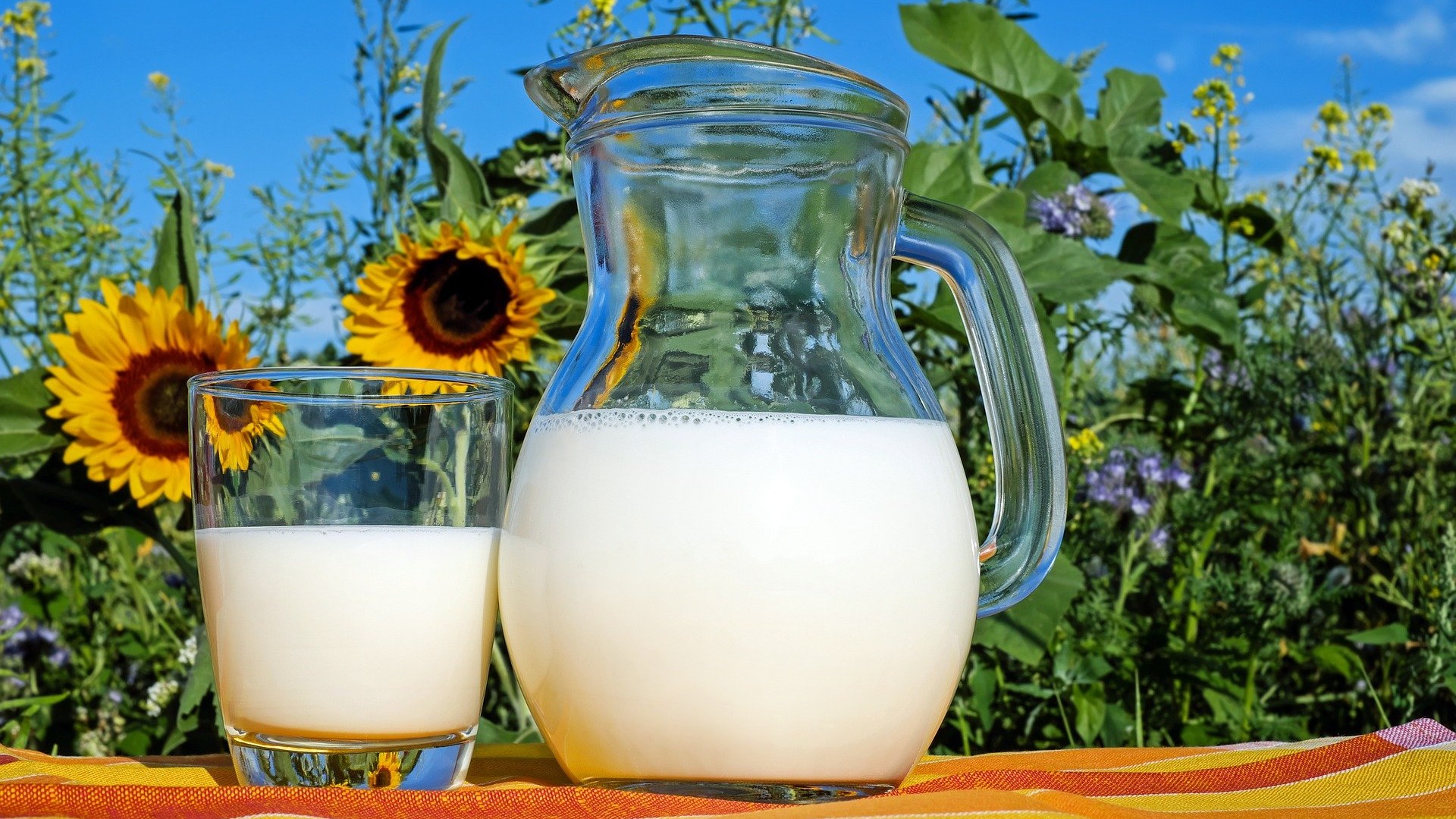
Dairy isn’t the best for allergy sufferers, especially aged cheese like parmesan and gouda. Cheese contains histamines which make your allergies worse and more uncomfortable. This is because dairy increases the body’s production of mucus which can clog the nose and throat and exacerbate runny noses and an itchy mouth. Chocolate and milk also have this effect but dairy-free options can make a huge difference.
4. Alcohol

We all enjoy having a cold pint in a pub garden during summer but there are types of alcohol containing histamines that can make your symptoms worse. Beer, cider and wine are the worst for allergies as they have the most histamines compared to spirits like vodka and gin. Alternatively, you can try these alcohol-free drinks to avoid this completely.

Beth is Home Editor for T3, looking after style, living and wellness. From the comfiest mattresses to strange things you can cook in an air fryer, Beth covers sleep, yoga, smart home, coffee machines, watches, grooming tools, fragrances, gardening and much more. If it's something that goes in your house, chances are Beth knows about it and has the latest reviews and recommendations! She's also in the know about the latest deals and discount codes from top brands and retailers.
Having always been passionate about writing, she’s written for websites, newspapers and magazines on a variety of topics, from jewellery and culture, to food and telecoms. You can find her work across numerous sites, including Wedding Ideas Magazine, Health & Wellbeing, The Bristol Post, Fashion & Style Directory, TechRadar, CreativeBloq and more. In her spare time, Beth enjoys running, reading, baking and attempting craft projects that will probably end in disaster!
-
 These luxury private members’ clubs have their own race tracks
These luxury private members’ clubs have their own race tracksFrom the UK to the US and Japan, these are the world’s most exclusive race track members’ clubs
By Alistair Charlton Published
-
 Apple TV+'s beloved sci-fi series gets a surprise sequel and trailer
Apple TV+'s beloved sci-fi series gets a surprise sequel and trailerWondla is coming back
By Max Freeman-Mills Published
-
 I spent 6 weeks with the FoodMarble Aire 2: here’s what I learned about my gut health
I spent 6 weeks with the FoodMarble Aire 2: here’s what I learned about my gut healthI’ve been testing the clever breath-testing gadget with the companion app over several weeks to find out if it delivers on its promises
By Lee Bell Published
-
 Oil pulling is going viral on TikTok for stopping morning breath – but does it actually work?
Oil pulling is going viral on TikTok for stopping morning breath – but does it actually work?4 hacks that prevent morning breath, according to a sleep expert
By Bethan Girdler-Maslen Published
-
 These limited edition McLaren x Loop earplugs are what you need for Formula 1 season
These limited edition McLaren x Loop earplugs are what you need for Formula 1 seasonMcLaren teams up with Loop on limited edition noise-reducing earplugs
By Bethan Girdler-Maslen Published
-
 3 reasons why you wake up at 3am every night – and how to avoid it
3 reasons why you wake up at 3am every night – and how to avoid itAlways waking up in the middle of the night? This could be why…
By Bethan Girdler-Maslen Published
-
 Therabody experts give 7 tips for perfecting your sleep routine for World Sleep Day
Therabody experts give 7 tips for perfecting your sleep routine for World Sleep DayFrom breathing exercises to sleep masks, here’s how to prioritise sleep, according to experts
By Bethan Girdler-Maslen Published
-
 Loop Dream review: super soft earplugs to help you snooze soundly, even if you’re a side sleeper
Loop Dream review: super soft earplugs to help you snooze soundly, even if you’re a side sleeperSquishy silicone and uniquely shaped ear tips take Loop’s nighttime earplugs to dreamy heights
By Joanna Ebsworth Published
-
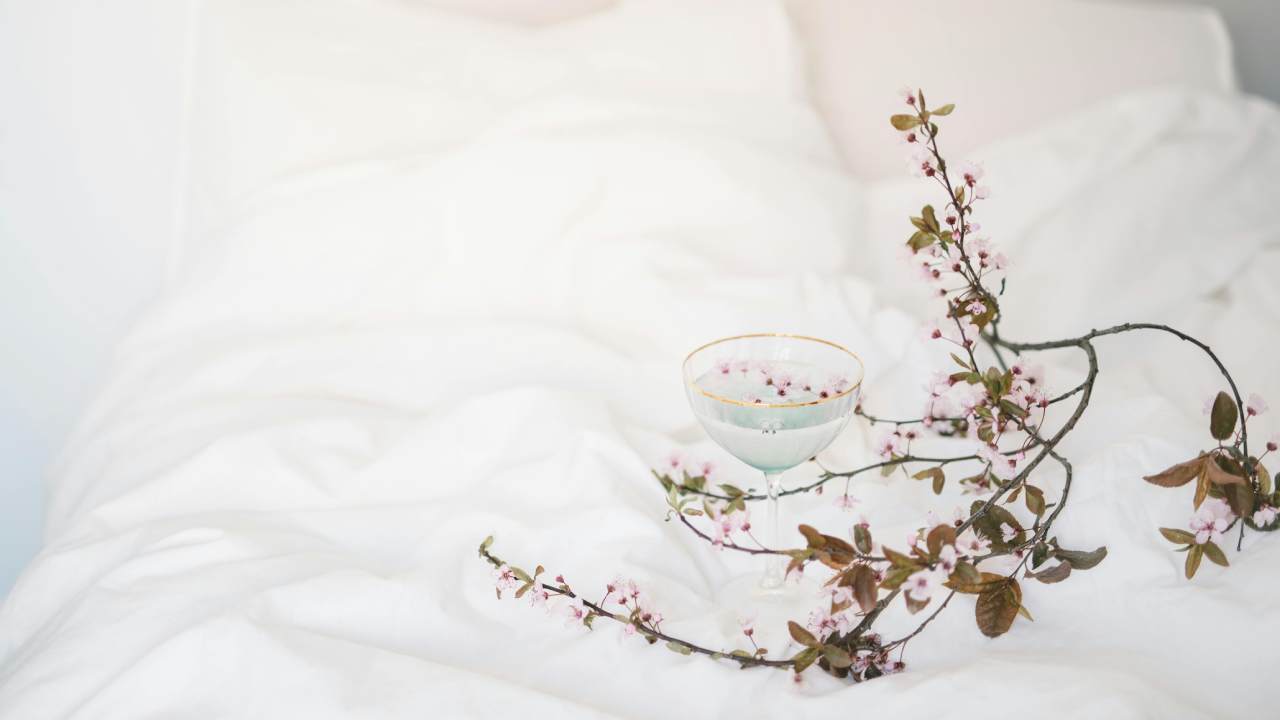 Can’t get to sleep? Grounding bed sheets could be the answer – but I need convincing
Can’t get to sleep? Grounding bed sheets could be the answer – but I need convincingIs this the future of sleep tech?
By Bethan Girdler-Maslen Published
-
 Simba reveals 3 shocking signs of sleep deprivation on the body
Simba reveals 3 shocking signs of sleep deprivation on the bodySimba’s latest study reveals the main physical effects of sleep deprivation
By Bethan Girdler-Maslen Published